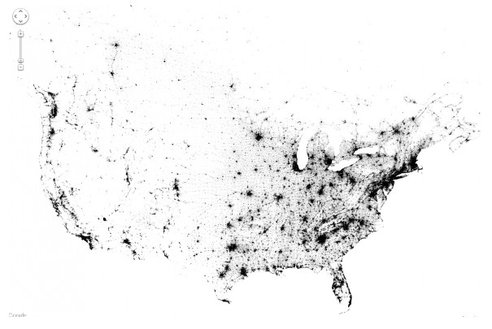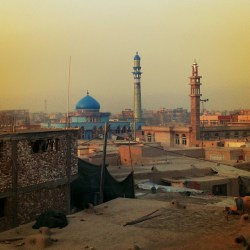Particulate matter is a particularly (pun intended and embraced) dangerous form of air pollution. Particulates are usually in the air as soot, small bits of burned fossil fuels which may cause millions of premature deaths annually. It was largely soot pollution that caused Beijing’s Bladerunner-esque pollution last week.
As I said, particulate pollution is usually soot. It doesn’t have to be. Sometimes, the polluting particles are something … much less pleasant. Take Kabul. From the Times:
It has long been a given that the air pollution in this city gets horrific: on average even worse than Beijing’s infamous haze, by one measure.
For nearly as long, there has been the widespread belief by foreign troops and officials here that — let’s be blunt here — feces are a part of the problem.
Canadian soldiers were even warned about it in predeployment briefings, which cited reports that one test had found that as many as 30 percent of air samples contained fecal particles. The Canadians were worried enough that the government ordered a formal investigation, officials say.
There’s reason to think that this apocryphal pollution assessment could be accurate. Kabul is bursting at the seams. The Times indicates that only 5 percent of homes are connected to sewage systems, in a city that now holds 10 times what it was designed for. And a common heating source is dried dung.
But not to worry. Science, history’s greatest killjoy, suggests that Kabul’s air is nearly feces-free. Not that this means it’s great to breathe.
When the United Nations Environment Program did a study that included air sampling, in 2008, it found plenty to worry about, but mostly what would be expected of a traffic-congested city: a lot of sulfur dioxide and nitrous oxides. Plus a very high concentration of particulates, known in the trade as PM 10 — which means particles smaller than 10 microns, small enough to penetrate deeply into the lungs, and an important indicator of air pollution — but no specific fecal bits. …
In fact, when the Canadians investigated the matter in response to their worried soldiers, the investigators said that some fecal matter in the air was normal — even in Canada. Some of it could just be bird and flying-insect droppings.
Kabul’s bigger problems are dust and geography — it lies on a plateau surrounded by mountains, limiting airflow. Breathing the air in the city is a health hazard regardless of what it is you’re inhaling, making this little consolation to residents or visitors.
But on the long list of reasons tourists might choose not to visit Kabul, at least the city can cross off “you will be inhaling feces.” Small victories.



